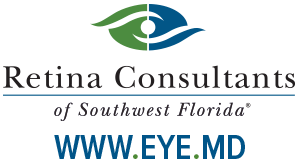I have macular degeneration: What do I do now?
What Is Macular Degeneration
Age-related macular degeneration is a common degenerative condition of the retina that can produce “legal blindness,” usually in retirement age population. About one in 10 individuals in their 50s will display some changes of AMD, and about one in three in their 70s will display AMD changes.
There is a definite genetic component to macular degeneration. If your sibling or a parent has the degeneration, you are far more likely to develop it than the average population.
Macular degeneration gets its name because it alters the retina tissue in the central vision area or macula of the eye. This is the only part of the retina that has central sharp reading vision. The remainder of the retina is responsible for side vision and adaptation to light and dark conditions.
AMD is generally put into two categories: wet AMD and dry AMD.
Dry AMD can have pigment changes and drusen (yellow, fatty deposits) build-up. The tissue can slowly waste away and can cause vision loss.
In wet AMD, bleeding and/or swelling can also occur. Approximately 10 percent of AMD patients will develop wet AMD. Wet AMD can have a much more dramatic effect on the vision, with rapid loss of vision if not treated. AMD is almost always in both eyes, although it can be worse in one eye.
What can I do to prevent vision loss
- You should have a dilated eye examination by your retina doctor at least once each year, or as recommended by your general eye doctor.
- Take vitamin supplements, as outlined in the Age Related Eye Disease Study.
- AREDS showed that taking vitamins containing high levels of vitamin C, vitamin E, beta carotene and zinc can slow the progress of the dry type of AMD. You can take the Bausch and Lomb formulation used in the study, or seek identical, less expensive formulations.
- If your eye doctor recommends the AREDS vitamins, please consult your general medical doctor, as high-dose vitamins can sometimes be harmful with certain medical conditions.
Some other tips
- Eat a healthy diet rich in green, leafy vegetables and oily fish
- Do not smoke
- Make sure to exercise and maintain good cardiovascular health;
- Monitor your vision often. You can check an Amsler grid each day. This is the best way to tell if your AMD is progressing. If you notice a change in your vision, please notify you eye doctor or retina specialist right away. Early treatment is the key. Please visit our website at www.eye.md for a downloadable Amsler grid card.
— Dr. Joseph P. Walker is a board-certified ophthalmologist specializing in diseases of the retina and vitreous and is the founder of Retina Consultants of Southwest Florida with offices in Fort Myers, Cape Coral, Port Charlotte and Naples. The Fort Myers office is at 6901 International Center Blvd. Call 939-4323 or visit www.eye.md.
Article originally appeared in the Fort Myers News-Press on 1/28/13
